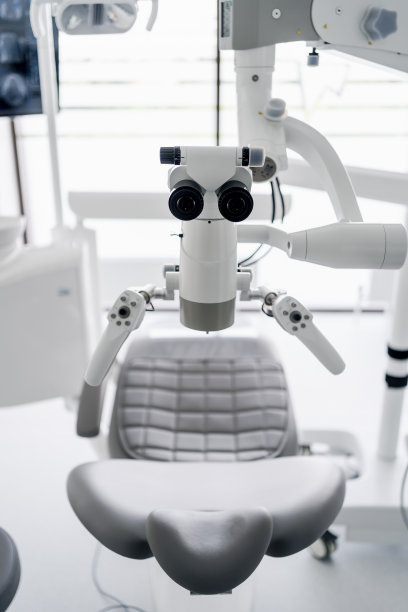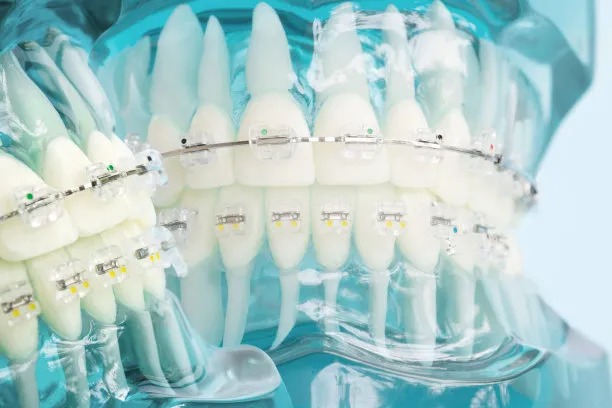Summary: Periodontal disease is a silent threat that can have a significant impact on oral health. This article will delve into the various aspects of periodontal disease and its implications for overall well-being.
1. Understanding Periodontal Disease

Periodontal disease, also known as gum disease, is a chronic inflammatory condition that affects the tissues surrounding the teeth. It is primarily caused by bacteria in plaque and tartar buildup, leading to gum inflammation and potential tooth loss if left untreated.
As periodontal disease progresses, it can result in pockets forming between the gums and teeth, leading to further bacterial growth and damage to the supporting structures of the teeth, including the bone. This can ultimately lead to tooth mobility and loss.
Additionally, periodontal disease has been linked to systemic health issues such as heart disease, diabetes, and respiratory diseases, emphasizing the importance of maintaining good oral health.
2. Signs and Symptoms of Periodontal Disease
Recognizing the signs and symptoms of periodontal disease is crucial for early intervention and treatment. Common symptoms include red, swollen gums, bleeding during brushing or flossing, persistent bad breath, and gum recession.
If left untreated, periodontal disease can progress to advanced stages where symptoms may include loose teeth, pus between gums and teeth, changes in bite alignment, and severe gum recession. Regular dental check-ups are essential for early detection and management.
Besides visible symptoms, individuals with periodontal disease may also experience sensitivity to hot or cold foods, pain when chewing, and a persistent metallic taste in their mouths, all of which warrant a dental evaluation.
3. Preventive Measures and Treatment Options
Maintaining good oral hygiene practices such as regular brushing, flossing, and routine dental cleanings are key preventive measures against periodontal disease. Proper oral care helps remove plaque and bacteria that contribute to gum inflammation and disease progression.
In cases where periodontal disease has already developed, professional treatments such as scaling and root planing, antibiotic therapy, and, in severe cases, surgical intervention may be necessary to restore gum health and prevent further damage.
Educating patients on proper oral care techniques and the importance of consistent dental visits can significantly reduce the risk of developing periodontal disease and promote long-term oral health.
4. Importance of Periodontal Health in Overall Well-Being
The impact of periodontal disease extends beyond oral health and can affect overall well-being. Chronic inflammation from periodontal disease has been linked to systemic conditions such as cardiovascular disease, diabetes, rheumatoid arthritis, and adverse pregnancy outcomes.
By addressing periodontal disease early and effectively, individuals can not only preserve their oral health but also reduce the risk of developing or exacerbating systemic health issues. Periodontal health is an integral component of overall wellness and should not be overlooked in maintaining a healthy lifestyle.
Regular communication between patients and dental professionals is essential in monitoring periodontal health, implementing appropriate treatment strategies, and promoting comprehensive well-being through optimal oral care practices.
Summary:
Periodontal disease poses a significant threat to oral health and overall well-being, emphasizing the importance of understanding, preventing, and treating this condition effectively. By being proactive in maintaining good oral hygiene practices, recognizing the signs of periodontal disease, seeking timely treatment, and acknowledging the systemic implications of gum disease, individuals can safeguard their dental health and enhance their quality of life.
This article is compiled by Vickong Dental and the content is for reference only
Vickong Dental
Vickong Dental is a large medical group established in Hong Kong in 2008 by professors from well-known medical universities in Guangdong and Hong Kong, as well as medical doctors from key national '985' universities (including Master's supervisors and senior professors). The chain of branches brings together expert dentists with PhDs and Master's degrees from Hong Kong and Mainland China, committed to providing high-quality dental treatment.
"Vickong Dental Practices the University Motto of 'Healing and Serving Society,' with a Stable Operation for Sixteen Years. It Has Been honored with Hong Kong Enterprise Leaders's Choice,' and is a Global Trusted Implant Center for the Nobel Implant System. Recommended by Hong Kong Metro Broadcast and Guangdong Television, it Serves Customers from Over Thirty Countries and Regions, Gaining the Trust and Favor of Citizens from the Guangdong-Hong Kong-Macau Greater Bay Area and Surrounding Cities.

Thousands of customers' unanimous praise
The most recognized and highly recommended dental service by customers in the Guangdong-Hong Kong-Macau Greater Bay Area
We Ensure You Receive Detailed Care and Attention Here
Hong Kong standards, Shenzhen prices, Your Trusted English-speaking dentists

Vickong Dental Medical-Grade Instrument Disinfection Process
Vickong Dental Medical-Grade Instrument Disinfection Process

Vickong Dental Chain: A Warm and Comfortable Environment for Treatment






Appointment Hours

Q&A
Why choose Vickong Dental?
Vickong Dental practices the university motto 「Medicine to Benefit Society」, with each branch bringing together highly qualified dentists with doctoral and master’s degrees from Hong Kong and the Mainland, and has maintained seventeen years of steady operation。Recipient of 「2024 Hong Kong Enterprise Leaders Brand」, 「2025 Hong Kong Enterprise Leaders Brand」, a Nobel Biocare Global Trusted Implant Center, and a brand recommended by Metro Radio Hong Kong and Guangdong TV。
To date, we have served customers from more than thirty countries and regions,earning exceptionally high word-of-mouth recognition and trusted recommendations from residents across the Guangdong-Hong Kong-Macao Greater Bay Area and surrounding cities
We have eight major branches in Zhuhai、Shenzhen,and a consultation and service assurance center in Hong Kong,so you can book a free consultation at any time for any questions,which is very reassuring.
If I do not accept the quotation after the CT scan, will I be charged??
No! As long as the actual treatment has not started, you will not be charged any fees.
Will there be any additional charges during the treatment process?
No, there won’t be any additional charges. Before treatment begins, we will clearly explain the treatment plan and its corresponding fees. Only after the patient agrees and signs the consent form will we proceed with the dental service.
Can I pay in Hong Kong dollars?
Yes. Vickong Dental accepts payment in Hong Kong dollars. The amount will be converted based on the exchange rate of the day, and the applicable rate will be clearly communicated to you in advance.
Can I reschedule my appointment at any time?
Yes. Please contact us via **WeChat** or **WhatsApp** as early as possible, providing your original appointment time and details, along with your preferred new date and time slot for rescheduling.













